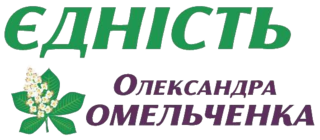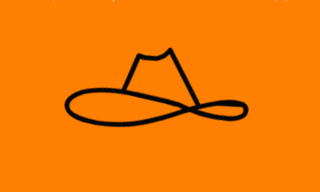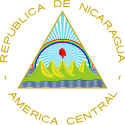
José Daniel Ortega Saavedra is a Nicaraguan politician who has been President of Nicaragua since 2007. Previously he was leader of Nicaragua from 1979 to 1990, first as coordinator (1979–1985) of the Junta of National Reconstruction, and then as President of Nicaragua (1985–1990). During his first term, he implemented policies to achieve leftist reforms across Nicaragua. In later years, Ortega's left-wing radical politics cooled significantly, leading him to pursue pro-business policies and even rapprochement with the Catholic Church. As a part of this, his government adopted strong anti-abortion policies, and his rhetoric took on a new, strongly religious tenor.

The Republic of Nicaragua elects on the national level a head of state—the president—and a unicameral legislature. The president of Nicaragua and his or her vice-president are elected on one ballot for a five-year term by the people.

Unity of Oleksandr Omelchenko, prior to 2020 Unity is a political party in Ukraine created in 1999 as a protest party. The party was led by the former mayor of Kyiv Oleksandr Omelchenko although in early 2008, he temporally halted his party membership in favor of a membership of Our Ukraine-Peoples Self Defence. Omelchenko died on November 25, 2021.

The Social Christian Unity Party is a centre-right political party in Costa Rica.

The 1999 European Parliament election in Portugal was the election of MEP representing Portugal constituency for the 1999–2004 term of the European Parliament. It was part of the wider 1999 European election. In Portugal the election was held on 13 June.

The 1994 European Parliament election in Portugal was the election of MEP representing Portugal constituency for the 1994-1999 term of the European Parliament. It was part of the wider 1994 European election. In Portugal the election was held on 12 June.

The 1989 European Parliament election in Portugal was the election of MEP representing Portugal constituency for the 1989-1994 term of the European Parliament. It was part of the wider 1989 European election. In Portugal the election was held on 18 June.
The 1987 European Parliament election in Portugal took place on 19 July 1987. It was the election of all 24 MEPs representing the Portugal constituency for the remainder of the 1984–1989 term of the European Parliament. Portugal had acceded to the European Community on 1 January 1986 and had been represented in the European Parliament by 24 appointed delegates until elections could be held. These elections took place on the same day of the legislative elections of 1987.

General elections were held in Nicaragua on 5 November 2006. The country's voters went to the polls to elect a new President of the Republic and 90 members of the National Assembly. Daniel Ortega (FSLN) won the election with 37.99% of the vote, Eduardo Montealegre (ALN) trailing with 28.30%, José Rizo (PLC) with 27.1%, Edmundo Jarquín (MRS) with 6.29%, and Edén Pastora (AC) with 0.29%.

The Nicaraguan Liberal Alliance is a political coalition in Nicaragua. It was started in 2005 by Eduardo Montealegre and other members of the Constitutional Liberal Party who opposed former President of the country Arnoldo Alemán's continued control of the PLC even after he had been found guilty of misuse of public funds, and was sentenced to 20 years in prison. Montealegre also opposed the political alliance, commonly referred to as 'El Pacto', between Alemán as head of the PLC and Daniel Ortega, head of the Sandinist National Liberation Front.

The Sandinista Renovation Movement is a Nicaraguan political party founded on 21 May 1995. It defines itself as a democratic and progressive party, made of women and men, which promotes the construction of a Nicaragua with opportunities, progress, solidarity, democracy and sovereignty.

The Nicaraguan Democratic Movement is a right-wing Nicaraguan political party with social democratic ideology. The MDN was formed in 1978 and re-registered in 1989. MDN was the first Contra party given legal status in Nicaragua. After receiving a small number of votes, the MDN lost its legal status in the 2004 municipal elections. After an ephemeral alliance with Alliance for the Republic (APRE), the MDN is, as of 2006, in an electoral alliance with the Nicaraguan Liberal Alliance (ALN).

The Alliance for the Republic is a centre-right liberal-conservative Nicaraguan political party founded in 2004 by dissident liberals from the Constitutional Liberal Party (PLC) and the Conservative Party (PC) including Enrique Bolaños, who was President of Nicaragua at the time.

Socialist Unity was a social-democratic political alliance in Italy which participated in the key 1948 general election, which decided the post-war direction of Italy.

General elections were held in Nicaragua on 20 October 1996 to elect the President and the members of the National Assembly. Arnoldo Alemán of the Liberal Alliance was elected President, with the Liberal Alliance also winning 42 of the 93 seats in the National Assembly.

General elections were held in Nicaragua on 6 November 2011. The incumbent president Daniel Ortega, won a third term in this election, with a landslide victory.

General elections were held in Costa Rica on 2 February 1986. Óscar Arias of the National Liberation Party won the presidential election, whilst his party also won the parliamentary election. Voter turnout was 82%.
The Israeli Labor Party, commonly known as HaAvoda, is a social democratic and Zionist political party in Israel. The party was established in 1968 by a merger of Mapai, Ahdut HaAvoda, and Rafi. Until 1977, all Israeli prime ministers were affiliated with the Labor movement. The current party leader is Merav Michaeli, who was elected in January 2021.

Calderonism or Calderonismo is a political and ideological doctrine of Costa Rica, which emerged in the 1940s under the leadership of caudillo Dr. Rafael Ángel Calderón Guardia, before, during and after he was president with his National Republican Party, and which was continued by various political forces such as Unity Coalition, National Unification Party and the current Social Christian Unity Party and its split the Social Christian Republican Party. It is together with Liberacionismo one of the two traditional political tendencies of Costa Rican politics, with which it represented a certain type of Costa Rican bipartisanship from 1986 to 2002 and revolves around the Calderón family. It is a form of populist and Catholic Christian socialism very similar to Argentine Peronism.
















